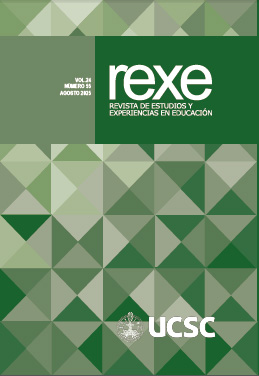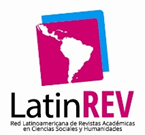Biases in AI and higher education. Typologies, impacts and mitigation for quality university education
DOI:
https://doi.org/10.21703/rexe.v24i55.3062Keywords:
Artificial intelligence, Higher education, Bias, Quality of education, Knowledge managementAbstract
This study examines the biases present in the use of artificial intelligence (AI), its specific characteristics, and the potential effects that this use may have on supporting assisted learning activities in contemporary university development. To do this, a documentary analysis method was used, resorting to magazines and studies specialized in the development of AI and its connection with current training challenges in higher education. Next, the study looks at how these biases affect training and explores ways to reduce them, so university students can better understand and use these tools in their learning. The results reveal different kinds of biases linked to using AI, mainly related to how the AI model is set up or trained, its quick responsiveness, and its tendency to reflect common values. These documented biases are still evolving, as are the training consequences, which mainly involve developing critical thinking, reproducing stereotypes, and promoting equity in education—key challenges for higher education. Finally, the training scope and the need to project the use of AI, which advances from a pedagogical resource to a didactic complement to the training processes at the university, are discussed, where teachers and students interact with it as a means rather than the ultimate goal of academic-professional training.
Downloads
References
Baidoo-Anu, D. & Owusu, L. (2023). Education in the Era of Generative Artificial Intelligence (AI): Understanding the Potential Benefits of ChatGPT in Promoting Teaching and Learning, 7(1), 52-62, http://dx.doi.org/10.2139/ssrn.4337484 DOI: https://doi.org/10.61969/jai.1337500
Beetham, H., & Sharpe, R. (2013). Rethinking learning in the digital age: A framework for the future of education. Routledge. DOI: https://doi.org/10.4324/9780203078952
Binns, R. (2022). The challenges of bias in AI systems: A systematic review. Journal of Artificial Intelligence Research, 45(4), 285-310. https://doi.org/10.1007/s10115-022-01521-w
Binns, R. (2023). Ethical considerations in the use of artificial intelligence in education. International Journal of Educational Technology, 46(2), 131-144. https://doi.org/10.1080/17439884.2023.2047789
Comisión Europea (2018). Educación y formación 2020: La dimensión europea en la educación superior. https://ec.europa.eu/education-policies
Chang, A., Kim, H., & Lee, Y. (2023). Artificial Intelligence and learning: A comprehensive review. Journal of Educational Technology, 35(2), 157-175. https://doi.org/10.1016/j.jedtech.2023.01.005
Chiappe, A., Sanmiguel, C., & Sáez Delgado, F. M. (2025). IA generativa versus profesores: reflexiones desde una revisión de la literatura. Pixel-Bit. Revista De Medios Y Educación, 72, 119–137. https://doi.org/10.12795/pixelbit.107046 DOI: https://doi.org/10.12795/pixelbit.107046
Chiu, T., Xia, Q., Zhou, X., Chai, CH., Cheng, M. (2023) Systematic literature review on opportunities, challenges, and future research recommendations of artificial intelligence in education, Computers and Education: Artificial Intelligence, 4, https://doi.org/10.1016/j.caeai.2022.100118 DOI: https://doi.org/10.1016/j.caeai.2022.100118
Chou, P., Chen, W., & Wang, C. (2022). Exploring the use of flipped classrooms for enhancing student engagement in the digital era. Computers & Education, 178, 104393. https://doi.org/10.1016/j.compedu.2021.104393
Deng, R., Jiang M., Yu X., Lu Y. & Liu S. (2025) Does ChatGPT enhance student learning? A systematic review and meta-analysis of experimental studies, Computers & Education, 277, 105224, https://doi.org/10.1016/j.compedu.2024.105224 DOI: https://doi.org/10.1016/j.compedu.2024.105224
Echeverría, J. & Almendros, L. S. (2022). Transformación digital y educación inclusiva. Revista Institucional | UPB, 61(161), 137–153. Recuperado a partir de https://revistas.upb.edu.co/index.php/revista-institucional/article/view/8105
Elbanna, S. & Armstrong, L. (2024), "Exploring the integration of ChatGPT in education: adapting for the future", Management & Sustainability: An Arab Review, 3(1), 16-29. https://doi.org/10.1108/MSAR-03-2023-0016 DOI: https://doi.org/10.1108/MSAR-03-2023-0016
Farrelly, T. & Baker, N. (2023) Generative Artificial Intelligence: Implications and Considerations for Higher Education Practice. Education Science, 13, 1109. https://doi.org/10.3390/educsci13111109 DOI: https://doi.org/10.3390/educsci13111109
Flores-Vivar, J. y García-Peñalvo, F. (2022). Reflexiones sobre la ética, potencialidades y retos de la Inteligencia Artificial en el marco de la Educación de Calidad (ODS4), 74, v.XXXI, p.37-47, https://doi.org/10.3916/C74-2023-03 DOI: https://doi.org/10.3916/C74-2023-03
Gallent Torres, C., Zapata González, A., & Ortego Hernando, J. L. (2023). El impacto de la inteligencia artificial generativa en educación superior: una mirada desde la ética y la integridad académica . RELIEVE - Revista Electrónica De Investigación Y Evaluación Educativa, 29(2). https://doi.org/10.30827/relieve.v29i2.29134 DOI: https://doi.org/10.30827/relieve.v29i2.29134
García, O. (2023). Uso y percepción de ChatGPT en la educación superior. Revista De Investigación En Tecnologías De La Información, 11(23), 98–107. https://doi.org/10.36825/RITI.11.23.009 DOI: https://doi.org/10.36825/RITI.11.23.009
García-Gutiérrez, J. (2013). Aproximación ética a la competencia digital. Los niveles de uso y sentido en ámbitos educativos virtuales. Education in the Knowledge Society (EKS), 14(3), 121–145. https://doi.org/10.14201/eks.11354 DOI: https://doi.org/10.14201/eks.11354
García Peñalvo, F. J., Llorens-Largo, F., & Vidal, J. (2024). La nueva realidad de la educación ante los avances de la inteligencia artificial generativa. RIED-Revista Iberoamericana de Educación a Distancia, 27(1), 9–39. https://doi.org/10.5944/ried.27.1.37716 DOI: https://doi.org/10.5944/ried.27.1.37716
González, Y., Manzano, O. y Torres, M. (2021). Tecnologías disruptivas en educación virtual, Revista REDIPE, 10(7), 185-200, https://dialnet.unirioja.es/servlet/articulo?codigo=8116507 DOI: https://doi.org/10.36260/rbr.v10i7.1357
Gligorea, I., Cioca, M., Oancea, R., Gorski, A. -T., Gorski, H., & Tudorache, P. (2023). Adaptive Learning Using Artificial Intelligence in e-Learning: A Literature Review. Education Sciences, 13(12), 1216. https://doi.org/10.3390/educsci13121216 DOI: https://doi.org/10.3390/educsci13121216
Günther, M., Reiter, A., & Müller, L. (2023). Bias and fairness in machine learning: Exploring the implications of AI decision-making. Journal of Computer Science and Technology, 27(1), 12-28. https://doi.org/10.1109/JCST.2023.00445
Hao, K. (2022). AI systems and their impact on decision-making: A deeper look at algorithmic biases. AI & Society, 37(2), 553-569. https://doi.org/10.1007/s00146-022-01342-6
Hernández, A., & Pérez, J. (2022). Digital literacy in higher education: The role of teachers in the digital transformation process. Journal of Education and Technology, 29(3), 198-213. https://doi.org/10.1007/s12672-022-00377-6
Jackman, J.A., Gentile, D.A., Cho, NJ. et al. (2021). Addressing the digital skills gap for future education. Nat Hum Behav 5, 542–545, https://doi.org/10.1038/s41562-021-01074-z DOI: https://doi.org/10.1038/s41562-021-01074-z
Jain, P., & Chhabra, P. (2022). Digital education and the digital divide: Ensuring equal opportunities for students. Journal of Educational Technology & Society, 25(4), 65-80. https://www.jstor.org/stable/48605088
Jenkins, H., Li, Y., & Zhang, T. (2022). AI in higher education: Enhancing learning through artificial intelligence tools. International Journal of Educational Research, 101, 54-67. https://doi.org/10.1016/j.ijer.2022.09.002
Kerman, N., Banihashem, S., Karami, M., Er, E., van Ginkel, S., Noroozi, O. (2023). Online peer feedback in higher education: A synthesis of the literature. Education and Information Technologies, 29:763–813 https://doi.org/10.1007/s10639-023-12273-8 DOI: https://doi.org/10.1007/s10639-023-12273-8
Kim, M., Kim, Y., & Lim, C. (2022). A study on teacher training for digital education: Implications for the future of teaching. Educational Technology Research & Development, 70(2), 443-463. https://doi.org/10.1007/s11423-022-10060-3
Kuleto, V., Ilić, M., Dumangiu, M., Ranković, M., Martins, O. M. D., Păun, D., & Mihoreanu, L. (2021). Exploring Opportunities and Challenges of Artificial Intelligence and Machine Learning in Higher Education Institutions. Sustainability, 13(18), 10424. https://doi.org/10.3390/su131810424 DOI: https://doi.org/10.3390/su131810424
Labraña, J., y Brunner, J. J. (2022). Transformación de la educación superior latinoamericana y su impacto en la idea de la universidad: Del acceso de élite a la masificación y universalización del acceso. Perfiles Educativos, 44(176). https://doi.org/10.22201/iisue.24486167e.2022.176.60539 DOI: https://doi.org/10.22201/iisue.24486167e.2022.176.60539
Liu, M., Wivagg, J., & Noddings, N. (2022). Digital tools in higher education: How teachers are responding to challenges and opportunities. International Journal of Educational Technology, 49(1), 100-115. https://doi.org/10.1007/s10758-021-09576-4
Liu, X., Zhao, M., & Wu, C. (2023). Personalized learning through AI: Opportunities and challenges in higher education. Educational Technology Research and Development, 71(4), 123-140. https://doi.org/10.1007/s11423-023-10001-w
Liu, X., Zhao, M., & Wu, C. (2023b). Understanding cultural bias in AI: Implications for global applications. International Journal of AI & Education, 24(2), 144-160. https://doi.org/10.1007/s40593-023-00308-7
Livingstone, S., Mascheroni, G., & Stoilova, M. (2023). The outcomes of gaining digital skills for young people’s lives and wellbeing: A systematic evidence review. New Media & Society, 25(5), 1176-1202. https://doi.org/10.1177/14614448211043189 DOI: https://doi.org/10.1177/14614448211043189
Lo, C.K. (2023) What Is the Impact of ChatGPT on Education? A Rapid Review of the Literature. Education Science, 13, 410. https://doi.org/10.3390/educsci13040410 DOI: https://doi.org/10.3390/educsci13040410
Marín, M. (2022). Digital transformation in higher education: Opportunities and challenges. Technology, Pedagogy, and Education, 31(1), 97-113. https://doi.org/10.1080/1475939X.2022.2072492
Marín-Megía, f.; López-Meneses, E.; Luque-de-la-Rosa, A.; Sánchez-Amate, J. J. (2025). Evolución de las competencias digitales docentes en la educación superior: un análisis de la producción científica. Campus Virtuales, 14(2), 35-56. https://doi.org/10.54988/cv.2025.2.1605 DOI: https://doi.org/10.54988/cv.2025.2.1605
Mehrabi, N., Morstatter, F., Saxena, N., & Lerman, K. (2022). A survey on bias and fairness in machine learning. ACM Computing Surveys, 55(3), 1-35. https://doi.org/10.1145/3497322 DOI: https://doi.org/10.1145/3457607
Mendoza, O. (2021). El derecho de protección de datos personales en los sistemas de inteligencia artificial. Revista IUS, 15(48), 179-207, https://doi.org/10.35487/rius.v15i48.2021.743 DOI: https://doi.org/10.35487/rius.v15i48.2021.743
Michel-Villarreal, R., Vilalta-Perdomo, E., Salinas-Navarro, D., Thierry-Aguilera, R., & Gerardou, F. (2023). Challenges and Opportunities of Generative AI for Higher Education as Explained by ChatGPT. Education Sciences, 13(9), 856. https://doi.org/10.3390/educsci13090856 DOI: https://doi.org/10.3390/educsci13090856
Miller, T., Phillips, L., & Chen, S. (2023). Collaborative learning and technology integration in higher education. Learning, Media and Technology, 48(1), 22-38. https://doi.org/10.1080/17439884.2022.2076234
Montoro-Montarroso, A., Cantón-Correa, J., Rosso, P., Chulvi, B., Panizo-Lledot, A., Huertas-Tato, J., Calvo-Figueras , B., Rementería, M., Gómez-Romero, J. (2023). Fighting disinformation with artificial intelligence: fundamentals, advances and challenges. Profesional De La información, 32(3). https://doi.org/10.3145/epi.2023.may.22 DOI: https://doi.org/10.3145/epi.2023.may.22
Nguyen, A., Ngo, H.N., Hong, Y. et al. (2023) Ethical principles for artificial intelligence in education. Educ Inf Technol, 28, 4221-4241, https://doi.org/10.1007/s10639-022-11316-w DOI: https://doi.org/10.1007/s10639-022-11316-w
Organización de las Naciones Unidas para la Educación, la Ciencia y la Cultura [UNESCO]. (2020). Global education monitoring report 2020: Inclusion and education: All means all. https://doi.org/10.54676/JJNK6989 DOI: https://doi.org/10.54676/JJNK6989
Organización de las Naciones Unidas para la Educación, la Ciencia y la Cultura [UNESCO]. (2023). Artificial Intelligence in Education:Challenges and Opportunities forSustainable Development, https://unesdoc.unesco.org/ark:/48223/pf0000366994
Organization for Economic Co-operation and Development [OECD] (2018). The future of education and skills 2030: OECD report. OECD Publishing. https://www.oecd.org/content/dam/oecd/en/publications/reports/2018/06/the-future-of-education-and-skills_5424dd26/54ac7020-en.pdf
Organization for Economic Co-operation and Development [OECD] (2023), Skills in Latin America: Insights from the Survey of Adult Skills (PIAAC), OECD Skills Studies, OECD Publishing, Paris, https://doi.org/10.1787/5ab893f0-en DOI: https://doi.org/10.1787/5ab893f0-en
Organization for Economic Co-operation and Development [OECD] (2023b), Country Digital Education Ecosystems and Governance: A Companion to Digital Education Outlook 2023, OECD Publishing, Paris, https://doi.org/10.1787/906134d4-en DOI: https://doi.org/10.1787/906134d4-en
O’Malley, P., & Cheng, R. (2023). Active learning and digital tools: Transforming higher education for the 21st century. Learning, Media and Technology, 48(1), 22-38. https://doi.org/10.1080/17439884.2022.2076234
O'Neil, C. (2022). Weapons of math destruction: How big data increases inequality and threatens democracy. Crown Publishing Group.
Patel, V., Sharma, R., & Chhabra, P. (2022). Overcoming resistance to technology adoption in higher education: A framework for educational institutions. International Journal of Educational Innovation, 44(1), 12-27. https://doi.org/10.1016/j.joe.2022.03.002
Pérez, J., Hernández, L., & Garcia, M. (2023). Integrating AI tools in university curricula: Challenges and solutions. Journal of Higher Education Innovation, 9(1), 42-57. https://doi.org/10.1016/j.jhe.2023.03.006
Ramírez, R. (2023). Sesgos y discriminaciones sociales de los algoritmos en Inteligencia Artificial: una revisión documental. Entretextos, 15(39), 1-17. https://doi.org/10.59057/iberoleon.20075316.202339664 DOI: https://doi.org/10.59057/iberoleon.20075316.202339664
Romero-Rodríguez, J., Ramírez-Montoya, M.S., Buenestado-Fernández, M. & Lara-Lara, F. (2023). Use of ChatGPT at University as a Tool for Complex Thinking: Students' Perceived Usefulness, Journal of new approaches in educational research, 12(2), 323-339, https://doi.org/10.7821/naer.2023.7.1458 DOI: https://doi.org/10.7821/naer.2023.7.1458
Sacavino, S. & Candau, M. (2022). Enseñanza Híbrida: desafíos y potencialidades. Estudios pedagógicos (Valdivia), 48(2), 257-266. https://dx.doi.org/10.4067/S0718-07052022000200257 DOI: https://doi.org/10.4067/S0718-07052022000200257
Salas-Pilco, S. Z., Xiao, K., & Oshima, J. (2022). Artificial Intelligence and New Technologies in Inclusive Education for Minority Students: A Systematic Review. Sustainability, 14(20), 13572. https://doi.org/10.3390/su142013572 DOI: https://doi.org/10.3390/su142013572
Salmi, J. (2017). The challenge of university transformation: A global perspective. Higher Education Policy, 30(1), 21-38. https://doi.org/10.1057/s41307-017-0042-4
Sánchez, M. P. (2024). La inteligencia artificial como recurso docente: usos y posibilidades para el profesorado, Educar 2024, 60(1) 33-47, https://doi.org/10.5565/rev/educar.1810 DOI: https://doi.org/10.5565/rev/educar.1810
Silva, J., Miranda, P. (2020). Presencia de la competencia digital docente en los programas de formación inicial en universidades públicas chilenas. Revista De Estudios Y Experiencias En Educación, 19(41), 149–165. Recuperado a partir de https://revistas.ucsc.cl/index.php/rexe/article/view/819 DOI: https://doi.org/10.21703/rexe.20201941silva9
Smith, A., & Johnson, R. (2023). The impact of AI on critical thinking in students: A longitudinal study. Technology, Pedagogy, and Education, 32(3), 89-104. https://doi.org/10.1080/1475939X.2023.1870227
Trowler, P. (2010). Student engagement and higher education: Theoretical perspectives and practical approaches. Routledge.
Van Damme, D. & D. Zahner (eds.) (2022), Does Higher Education Teach Students to Think Critically?, OECD Publishing, Paris, https://doi.org/10.1787/cc9fa6aa-en DOI: https://doi.org/10.1787/cc9fa6aa-en
Villarreal-Villa, S., García-Guliany, J., Hernández-Palma, H., y Steffens-Sanabria, E. (2019). Competencias Docentes y Transformaciones en la Educación en la Era Digital. Formación universitaria, 12(6), 3-14. https://dx.doi.org/10.4067/S0718-50062019000600003 DOI: https://doi.org/10.4067/S0718-50062019000600003
Villegas-José, V. y Delgado-García, M. (2024). Inteligencia artificial: revolución educativa innovadora en la Educación Superior, PIXEL-BIT, 71, 159-177, https://doi.org/10.12795/pixelbit.107760 DOI: https://doi.org/10.12795/pixelbit.107760
Vincent, J. (2023). AI and the limits of objectivity: Exploring algorithmic bias in language models. Nature Machine Intelligence, 5(1), 34-47. https://doi.org/10.1038/s41586-023-00553-1
Von Krogh, G., Roberson, Q. & Gruber, M. (2023). Recognizing and Utilizing Novel Research Opportunities with Artificial Intelligence, Academy of Management Journal, 66(2), https://doi.org/10.5465/amj.2023.4002 DOI: https://doi.org/10.5465/amj.2023.4002
Walter, Y. (2024) Embracing the future of Artificial Intelligence in the classroom: the relevance of AI literacy, prompt engineering, and critical thinking in modern education. Int J Educ Technol High Educ 21, 15. https://doi.org/10.1186/s41239-024-00448-3 DOI: https://doi.org/10.1186/s41239-024-00448-3
Wang, Q., Peng, Y. and Wang, H. (2021). A Curation Activity-Based Self-Regulated Learning Promotion Approach as Scaffolding to Improving Learners’ Performance in STEM Courses, Journal of Educational Computing Research, 60(4), https://doi.org/10.1177/07356331211056532 DOI: https://doi.org/10.1177/07356331211056532
Wang, S., Wang, F., Zhu, Z., Wang, J., Du, Z. (2024). Artificial intelligence in education: A systematic literature review. Expert Systems with Applications, 252, Part A, https://doi.org/10.1016/j.eswa.2024.124167 DOI: https://doi.org/10.1016/j.eswa.2024.124167
Zhai, Ch., Wibowo, S. and Li, L. (2024) The efects of over-reliance on AI dialogue systems on students’ cognitive abilities: a systematic review. Smart Learning Environments, 11(28) https://doi.org/10.1186/s40561-024-00316-7 DOI: https://doi.org/10.1186/s40561-024-00316-7
Zhang, Y., Chen, T., & Wang, S. (2022). Optimism bias and AI: The role of algorithms in shaping perceptions. Journal of Artificial Intelligence Ethics, 4(3), 203-217. https://doi.org/10.1007/s43681-022-00048-4
Zhou, L., Li, H., & Zhang, W. (2023). Technocentric bias in AI models: A critical analysis of algorithmic fairness. Journal of AI and Society, 38(5), 677-693. https://doi.org/10.1007/s00146-023-01555-0
Zhang, L., Zhao, M., & Wong, R. (2023). Addressing the digital divide in education: A review of policies and practices in developing countries. Educational Technology Research & Development, 71(1), 77-90. https://doi.org/10.1007/s11423-022-10060-3
Downloads
Published
Issue
Section
License
Copyright (c) 2025 Ricardo Garcia Hormazabal

This work is licensed under a Creative Commons Attribution 4.0 International License.
Open Access Policy
This journal provides immediate open access to its content, based on the principle that offering the public free access to research fosters greater global knowledge exchange.
License
The REXE Journal, “Journal of Studies and Experiences in Education,” published by the Faculty of Education at the Universidad Católica de la Santísima Concepción, is distributed under a License. Creative Commons Atribución 4.0 Internacional.






